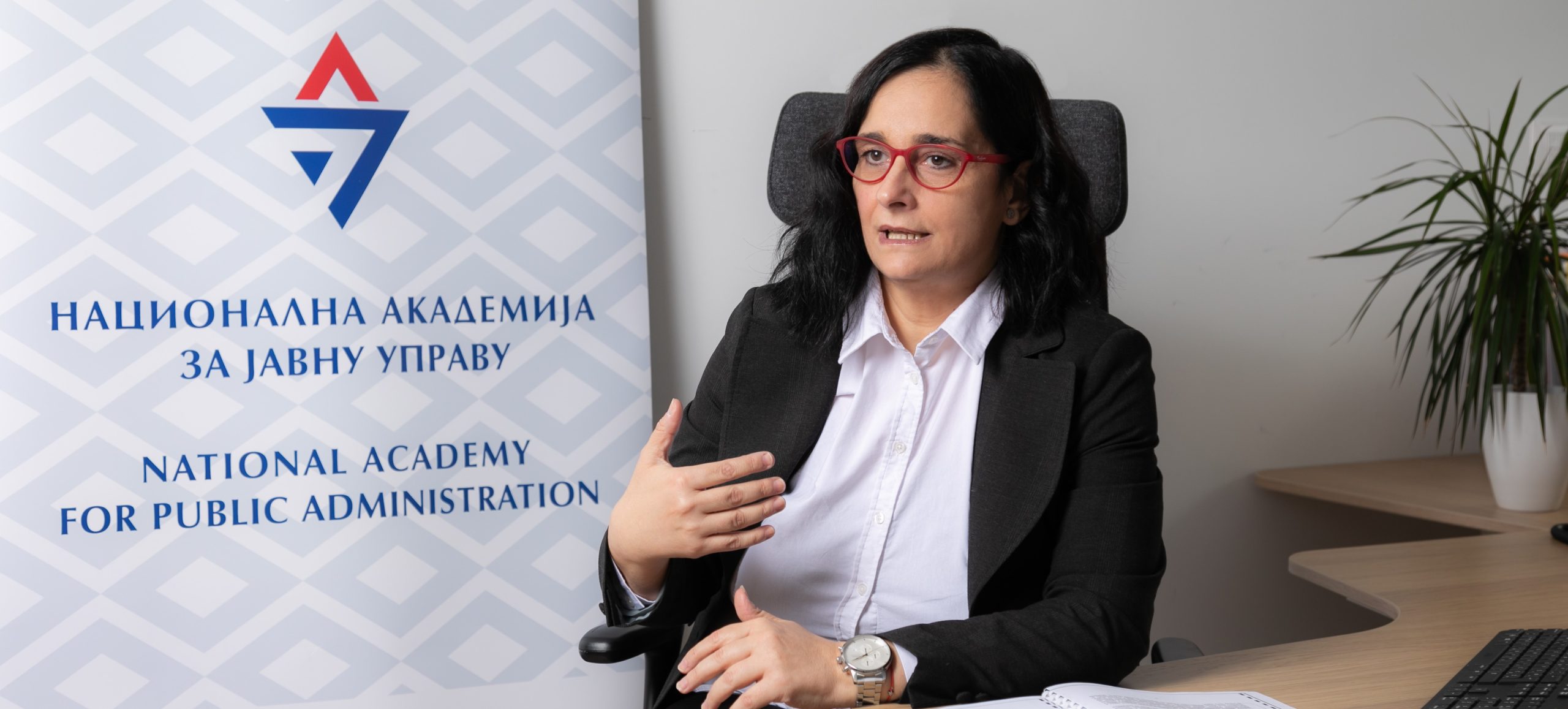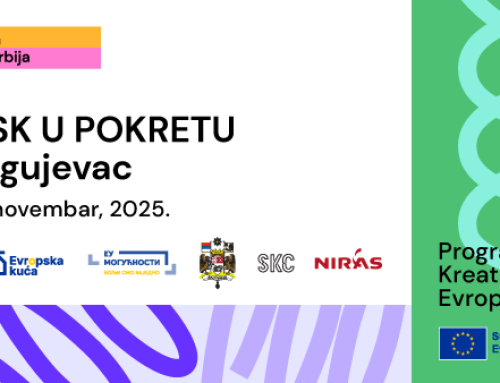The commitment, education and professionalism of public administration civil servants are among the most important factors for the practical realization of a modern and service-oriented state.
“Strengthening professional capacities of senior civil servants in Serbia” is the first project of the National Academy of Public Administration (NAPA) aimed at improving the capacities of senior civil servants, which is financed from the funds of the European Union as a direct grant. The implementation of this project was preceded by other projects also supported by the EU, which enabled the establishment and successful start of the Academy’s work, said Snežana Antonijević, Assistant Director of the National Academy for Public Administration and added:
“The project will contribute to strengthening the managerial and professional capacities of senior civil servants through the implementation of a modern development program that includes the most current topics of importance for the work of the public administration, study visits to EU institutions, as well as additional development instruments such as individual development plans and coaching sessions,” stated Antonijević.
The Delegation of the European Union to Serbia fully finances this project with almost one million euros for the training of senior civil servants. During the two years of the implementation of the project, despite the circumstances that the Academy and our society faced, about 150 senior civil servants, both newly appointed and those who have been appointed for a longer period of time, participated in various modules of the Training programme for managers in state authorities and have many years of experience in public administration. The goal of the Academy is to contribute through this project to the development of a modern public administration system by improving the competencies of civil servants, such as: innovation, self-awareness and personal effectiveness, and good communication and others.
Milan Pašić, Assistant Minister of Education and participant of the “Fundamentals – essential issues” training, which is intended for newly appointed civil servants, emphasized the compatibility of the program with current challenges, but also with long-term professional determinations and development plans in the field of public administration.
“The program is characterized by the topicality of the selected topics and a noticeable effort to provide assistance to managers, in order to acquire knowledge and skills, as well as to find the rights answers to the challenges of current circumstances as successfully as possible and improve the ability to successfully perform the function of leadership in a state authority and improve the quality in the process of public policy drafting and implementation. A key role in the development and improvement of the quality of the public administration system, as well as in the overall development of the country, belongs to the lifelong learning and professional development of all employees in the system, especially managers, and in this time, for the sake of the common good, it is necessary to find more successful ways than in the past in order to respond to those challenges as comprehensively and reliably as possible. Public administration management under the mentioned circumstances presents the manager with various challenges which require the right measure and answers. I am convinced that this program, developed for managers, offered adequate solutions for the current challenges they faced or may face, especially in the field of comprehensive improves the quality of work in the public administration in our country”, said Pašić.

Training programme for managers in state authorities: “Fundamentals” and “Honeycombs”
“Fundamentals – essential issues”, is a training programme intended for newly appointed civil servants. The main goal of the programme is to provide important knowledge and skills and prepare the civil servant for a new role. The programme is actually a guide in finding answers to the questions – where I work, with whom I work, how I work and how to achieve good results.
“Honeycombs” aims to enable continuous personal and professional development of employees. The training programme consists of different modules (learning packages) and is represented by a honeycomb that illustrates the idea that different modules, tailored to the specific needs of senior civil servants, are combined to meet all the need of the participants. The programme offers the possibility of attending only those modules that the civil servant chooses according to his/her interest, with a strong individual approach and flexibility.
Upon completion of various training modules, senior civil servants master additional knowledge and various skills that they can apply in their daily work in public administration. For example, through the module Achieving results: Management of the public policy system, the participant masters the stages of the policy management cycle and uses instruments for managing the implementation and monitoring of public policies, through the skills of cost analysis and principles for connecting public policies and budgeting, through the module Managerial role – Managing others, participants can take responsibility for proactively leading changes after the training and to lead his/her team in the direction of achieving quality cooperation while developing his/her own faith in leadership.

The European Union’s support for the public administration reform in Serbia is worth over EUR 214 million, from 2000 to this day. The funds intended for public administration are used for the professionalization of administration, development of electronic services, management of public finance and improvement of the work of local self-governments and independent institutions.
Public administration reform is one of the most important elements of Serbia’s EU accession process, and in 2014 it was also placed at the forefront of the negotiations. A modern and professional public administration is a key element for every EU member state in order to effectively implement laws and manage EU funds transparently.




